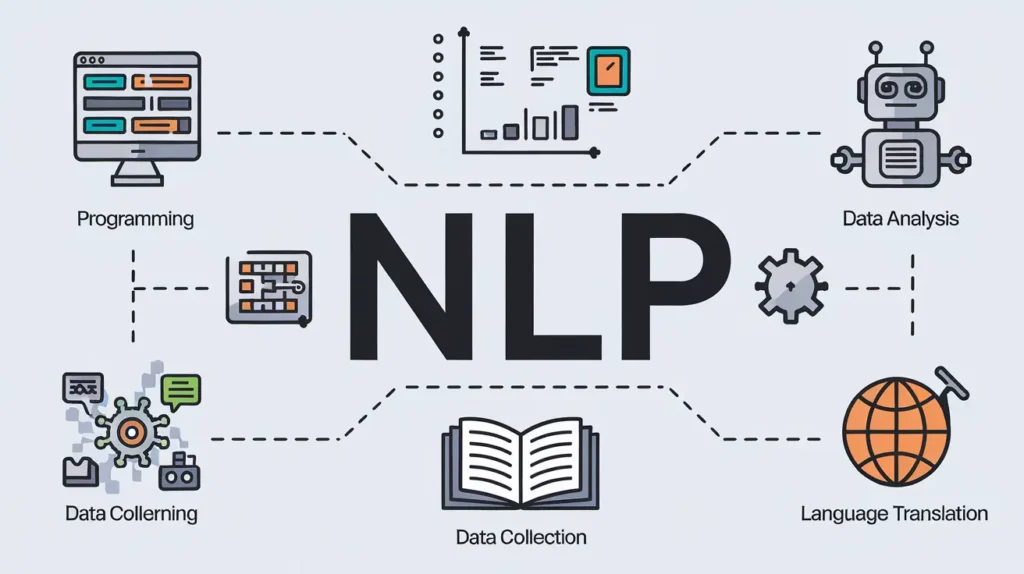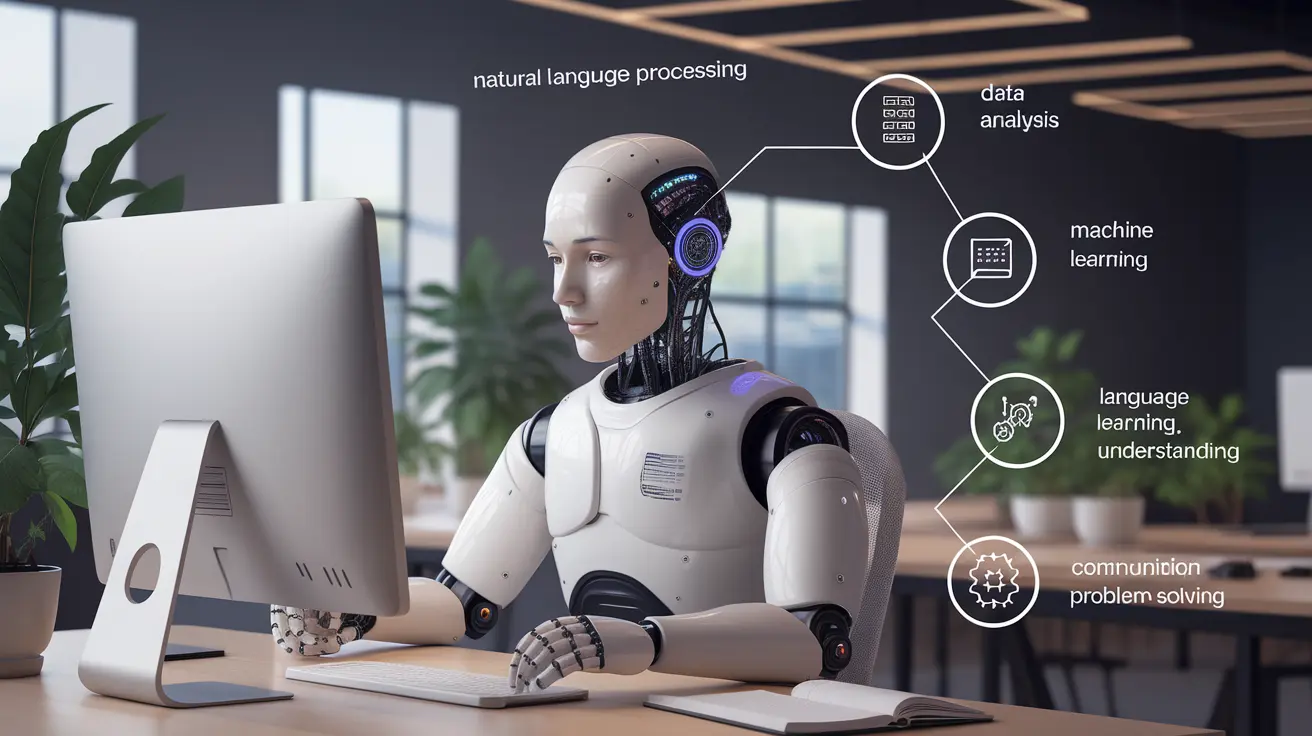Future work skills that greatly benefit from Neuro-Linguistic Programming (NLP) include adaptive communication, emotional intelligence (EQ), influence and persuasion, problem-solving and creativity, leadership and coaching, and stress management and resilience. These skills are increasingly vital as automation handles routine tasks, leaving humans to excel in interpersonal, adaptive, and innovative roles. NLP provides practical techniques to enhance them, such as rapport building for better teamwork, reframing for creative solutions, and anchoring for resilience under pressure.
The future of work is evolving faster than ever. Automation, artificial intelligence, and global connectivity are reshaping industries. While machines take over repetitive tasks, the abilities that set professionals apart will revolve around creativity, leadership, adaptability, and communication.
This is where NLP becomes a game-changer. By mastering self-awareness, understanding others, and influencing effectively, professionals develop the exact skills that ensure success in a workplace driven by collaboration and innovation.
Key Takeaways
- NLP strengthens essential future skills like adaptability, communication, and emotional intelligence.
- Professionals who master NLP can negotiate, lead, and build trust more effectively in digital-first workplaces.
- Leadership, coaching, and team collaboration will increasingly depend on NLP strategies.
- As automation grows, soft skills powered by NLP will determine career growth and longevity.
- Learning NLP now is an investment in staying competitive and future-proof.
Why NLP Matters for Future Work Skills

According to the World Economic Forum’s Future of Jobs Report 2025, 44% of core workforce skills will change by 2030, with top priorities including AI literacy, leadership, social influence, and resilience areas where NLP directly contributes through techniques like perceptual positioning and future pacing
NLP directly supports these by helping professionals:
- Reframe problems into solutions.
- Communicate persuasively across cultures.
- Manage stress and remain adaptable in uncertain times.
- Build stronger relationships in hybrid and digital teams.
Future Work Skills That Need NLP

Adaptive Communication
In global, multicultural workplaces, NLP equips professionals to read body language, match communication styles, and build instant rapport essential for collaboration across borders.
In remote teams using AI tools like virtual collaboration platforms, NLP’s mirroring techniques can reduce miscommunication by 20-30%, based on studies from organizational psychology journals.
Emotional Intelligence (EQ)
NLP tools like anchoring and reframing regulate emotions, enhance empathy, and strengthen resilience. Leaders with strong EQ consistently outperform in managing hybrid teams.
Companies like Google have integrated EQ training (aligned with NLP principles) into leadership programs, resulting in higher employee retention rates as per their annual reports
Influence & Persuasion
From sales to leadership, influence is non-negotiable. NLP’s storytelling and language patterns make persuasion ethical and authentic, helping drive innovation and change.
Problem-Solving & Creativity
Future challenges won’t always have clear solutions. NLP sharpens lateral thinking and future pacing, enabling professionals to design innovative approaches.
Leadership & Coaching Skills
The leader of the future is also a coach. NLP questioning techniques (like the Meta Model) empower teams, uncover solutions, and build confidence.
Stress Management & Resilience
In a fast-changing workplace, resilience is critical. NLP’s visualization and anchoring methods help professionals reset focus and maintain peak performance.
NLP Techniques That Build Future Work Skills
NLP isn’t just a theory; it’s a practical set of tools for thinking differently, connecting deeply, and influencing ethically. The most valuable techniques include:
- Rapport Building: Creating instant trust through mirroring and matching communication styles, crucial for global teamwork.
- Anchoring: Linking positive emotional states to triggers, enabling confidence and calm under pressure.
- Reframing: Shifting perspectives to turn challenges into opportunities, building adaptability.
- Meta Model Questioning: Using precise questions to clarify vague statements, resolve problems, and guide teams.
- Milton Model (Language of Influence): Ethical language patterns that motivate action without resistance.
- Modeling Excellence: Replicating successful strategies of top performers to accelerate results.
- Future Pacing: Mentally rehearsing success, boosting confidence and readiness for challenges.
- Perceptual Positions: Viewing situations from self, other, and observer perspectives to improve empathy and conflict resolution.
How NLP Techniques Connect to Future Work Skills
| Future Work Skill | NLP Technique(s) | Workplace Benefit |
| Adaptive Communication | Rapport Building, Mirroring | Stronger global teamwork |
| Emotional Intelligence (EQ) | Anchoring, Perceptual Positions | Greater empathy & resilience |
| Influence & Persuasion | Milton Model, Storytelling | Inspiring leadership & ethical sales |
| Problem-Solving & Creativity | Reframing, Future Pacing | Innovative and adaptable solutions |
| Leadership & Coaching | Meta Model, Modeling Excellence | Effective team empowerment & guidance |
| Stress Management & ResilienceAI Literacy & Integration | Anchoring, VisualizationFuture Pacing, Modeling Excellence | Calm focus under pressureSeamless collaboration with AI tools for enhanced productivity |
Practical Ways to Apply NLP in the Workplace

- Leaders & Executives: Use reframing, rapport-building, and language of influence to guide diverse teams, reduce resistance, and inspire commitment.
- Coaches & Educators: Apply questioning models and storytelling to unlock insights, make learning memorable, and transform performance.
- Employees & Professionals: Strengthen adaptability, communication, and resilience to thrive in hybrid and high-pressure settings.
- Entrepreneurs & Business Owners: Use persuasive language and future pacing to negotiate deals, attract investors, and win client trust.
- Sales & HR Professionals: Apply NLP to build rapport, influence ethically, resolve conflicts, and unlock hidden team potential.
Integration Tip: Combine NLP with emerging tools like AI chatbots for role-playing scenarios, practicing persuasion in simulated sales calls.
The Bottom Line
The future workplace won’t just reward technical skills; it will belong to professionals who can connect, influence, adapt, and inspire. NLP builds those very skills, making it an essential toolkit for thriving in a world of rapid change.
Investing in NLP today is like equipping yourself with a future-proof strategy for career growth, leadership, and resilience.
FAQ
Why is NLP important for future work skills?
NLP builds adaptability, communication, and emotional intelligence skills that AI and machines cannot replicate.
Which future jobs will need NLP the most?
Leadership, sales, coaching, entrepreneurship, HR, and consulting roles benefit most since they rely heavily on influence and empathy.
How does NLP improve adaptability?
NLP trains the mind to reframe challenges, regulate emotions, and embrace uncertainty, building resilience and solution-focused thinking.
Can NLP make me a better leader?
Yes. NLP strengthens active listening, influence, and coaching skills, enabling leaders to inspire and guide teams effectively.
How can I start learning NLP for work?
Begin with a beginner-friendly training program on NLP or join communities on LinkedIn for practical exercises.





